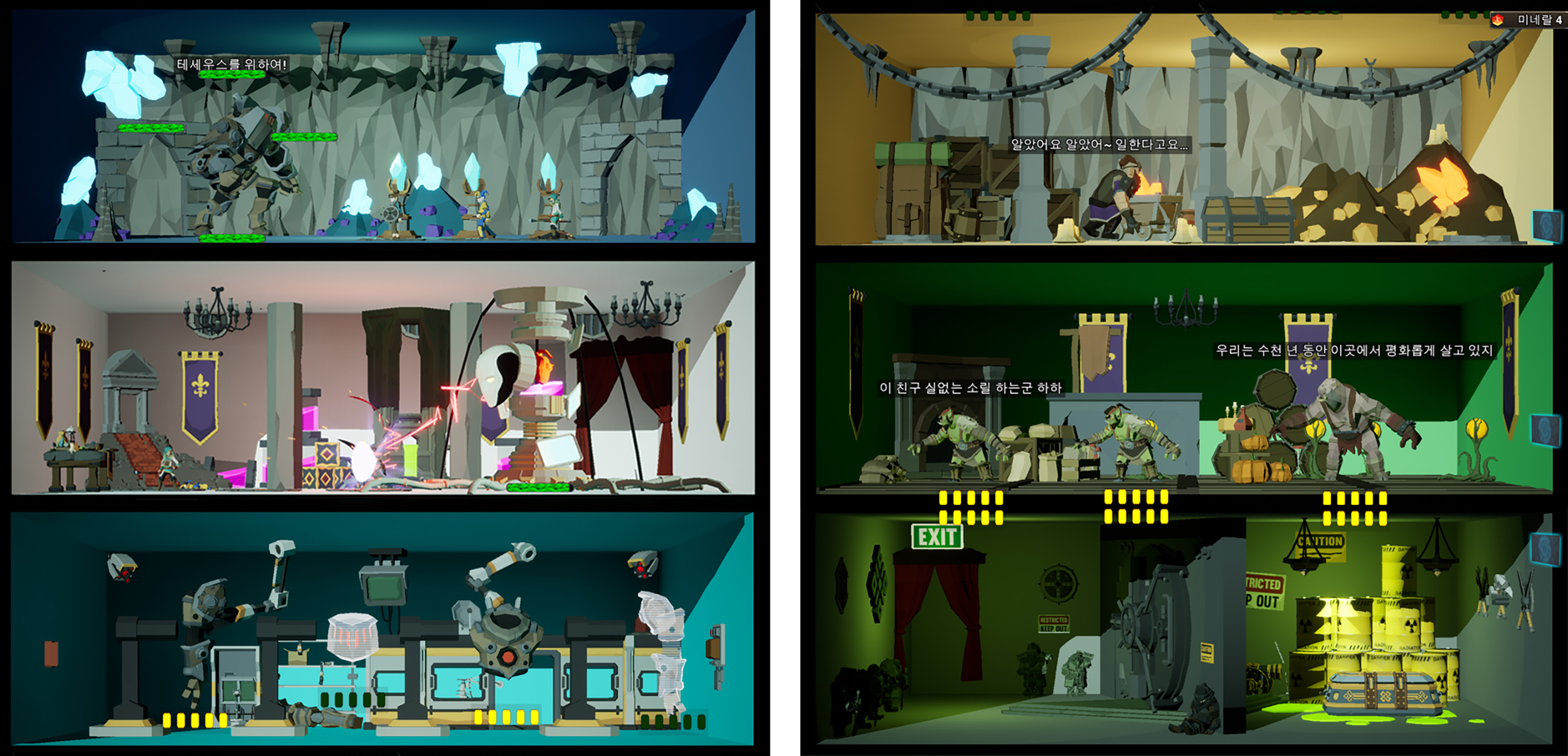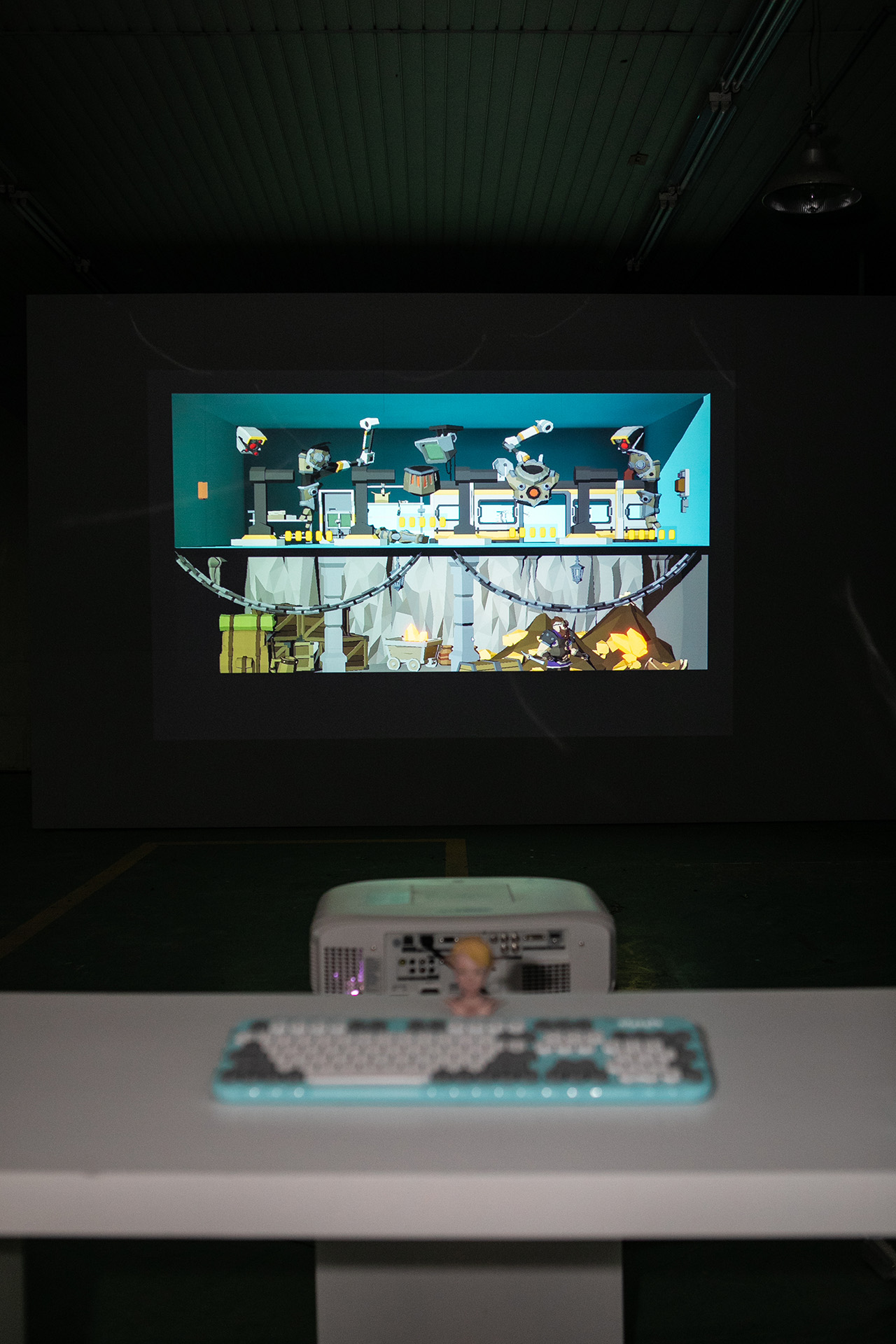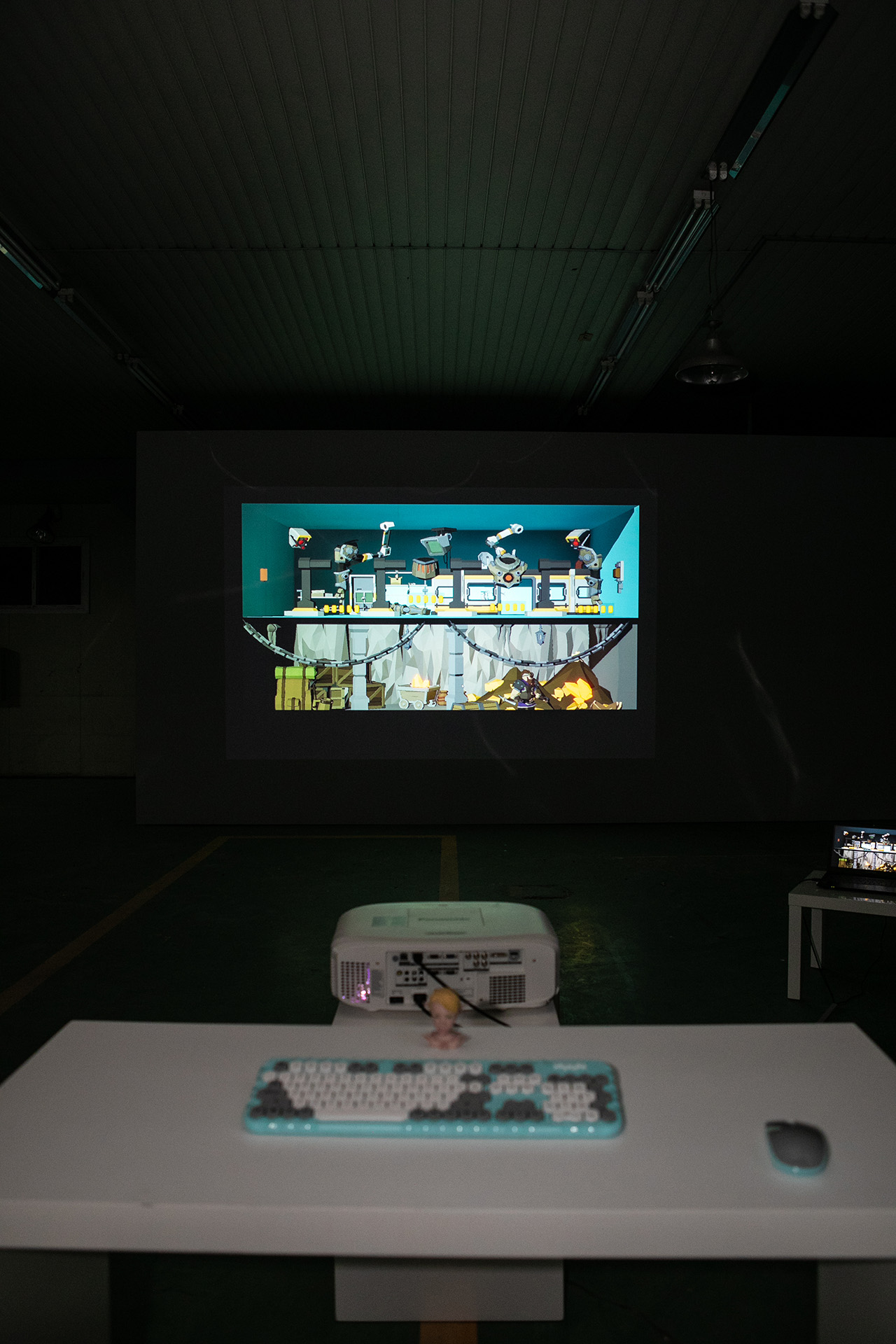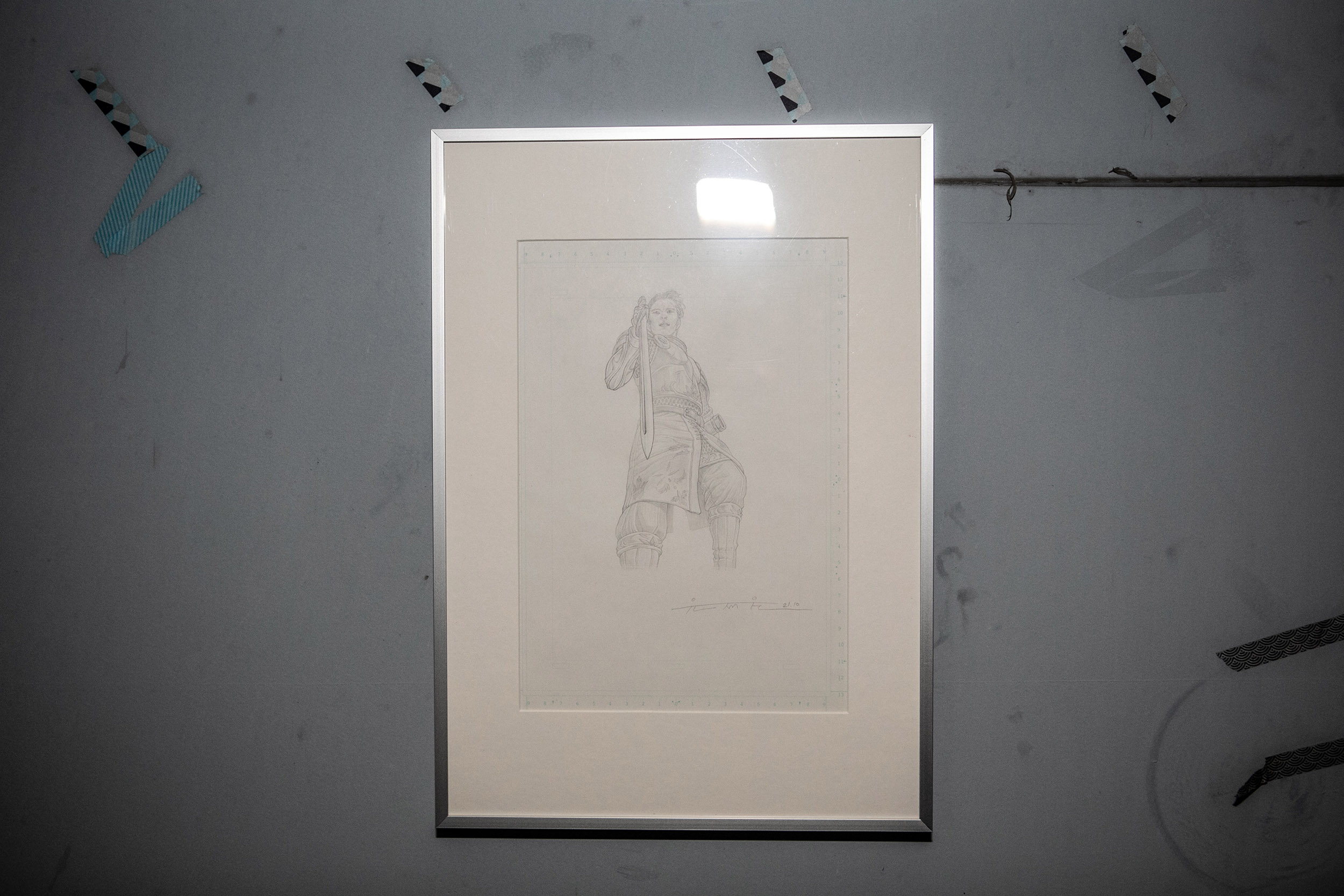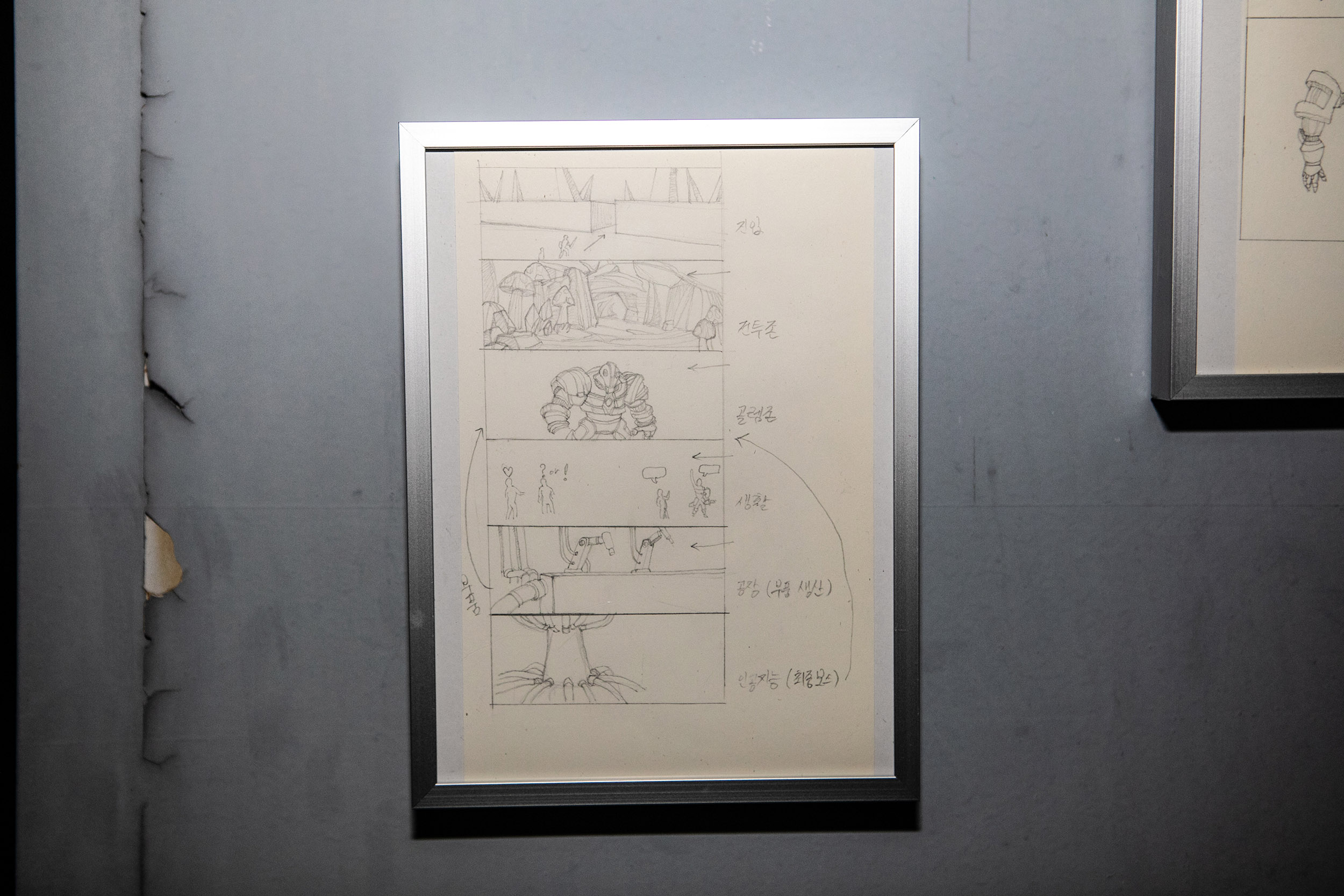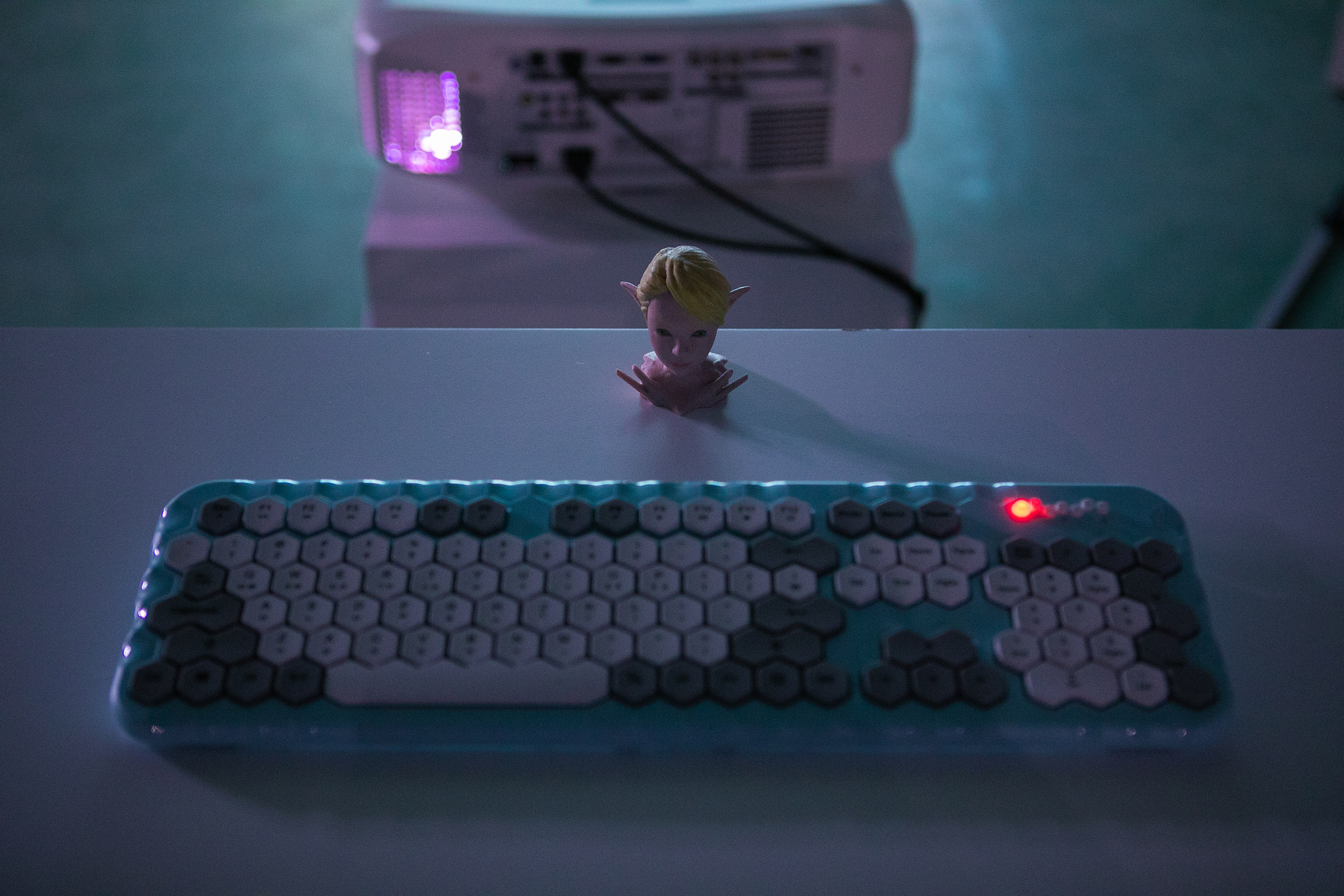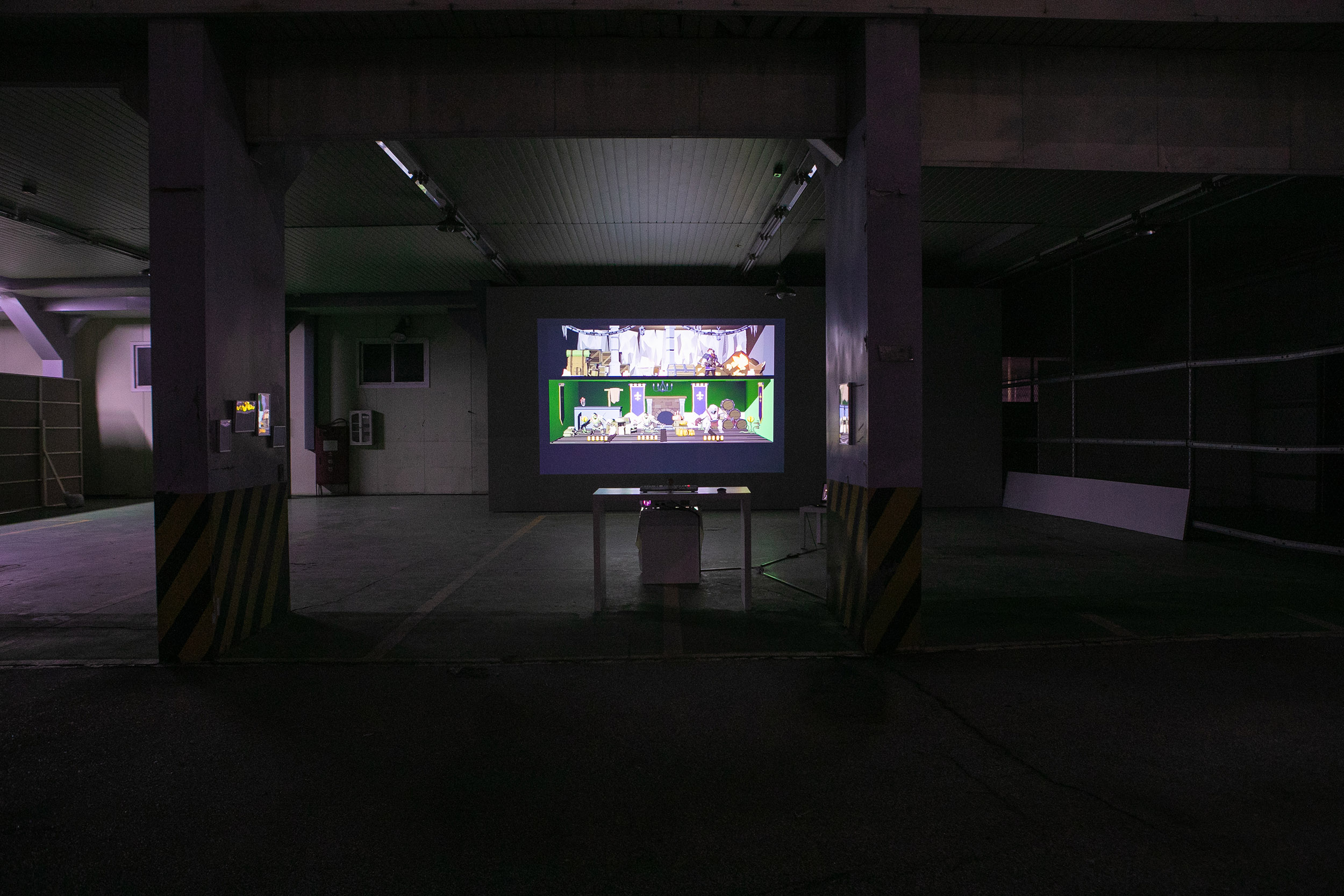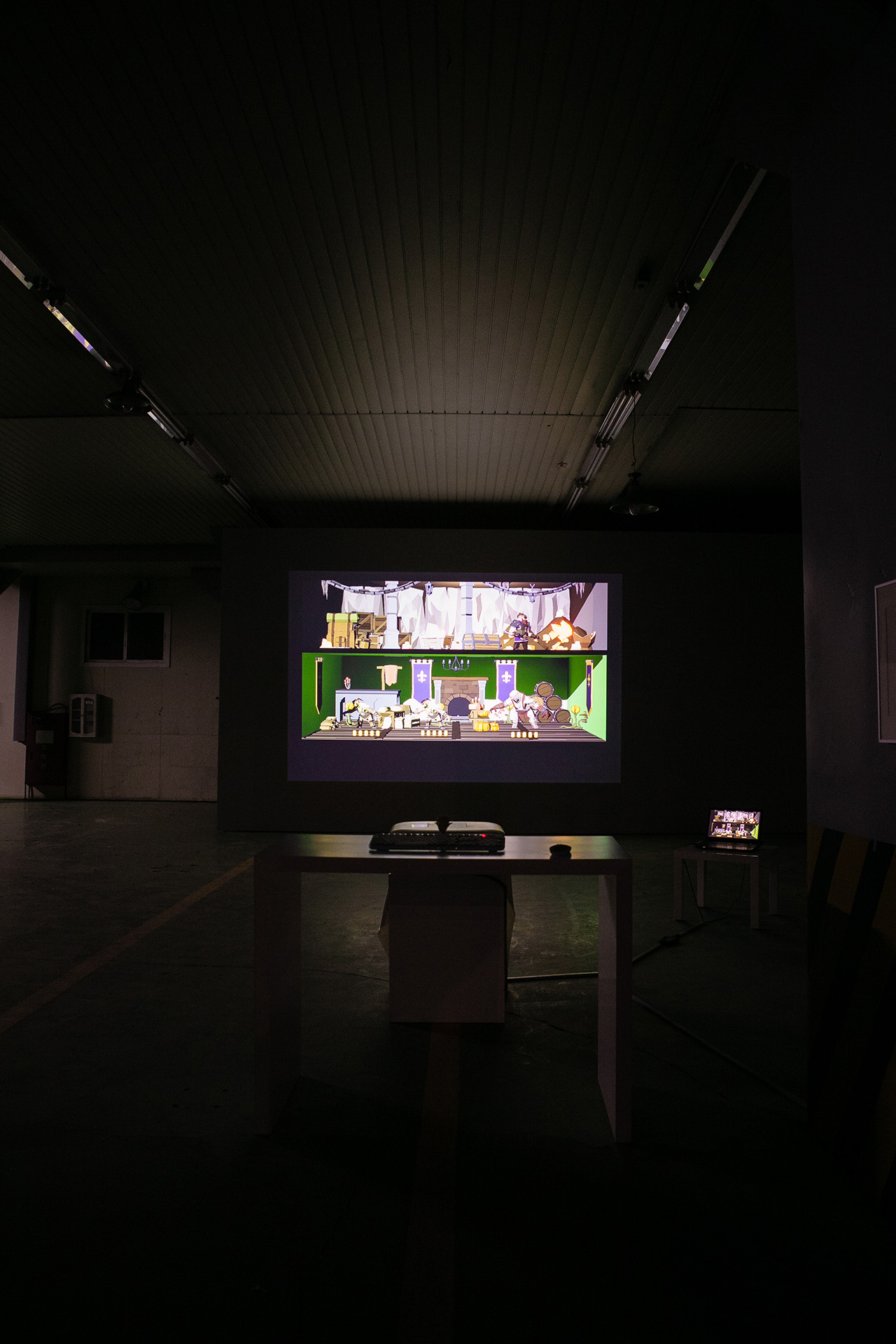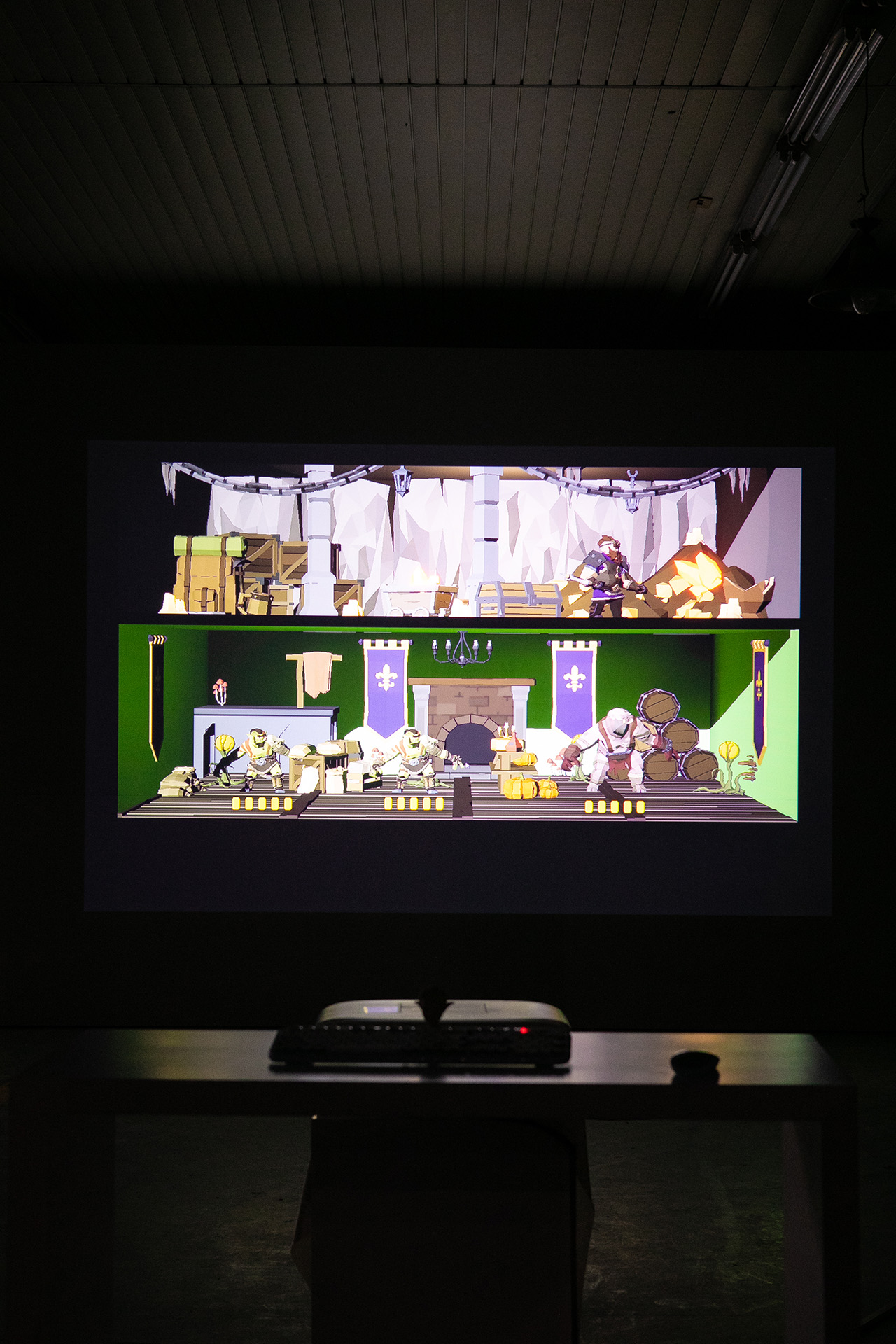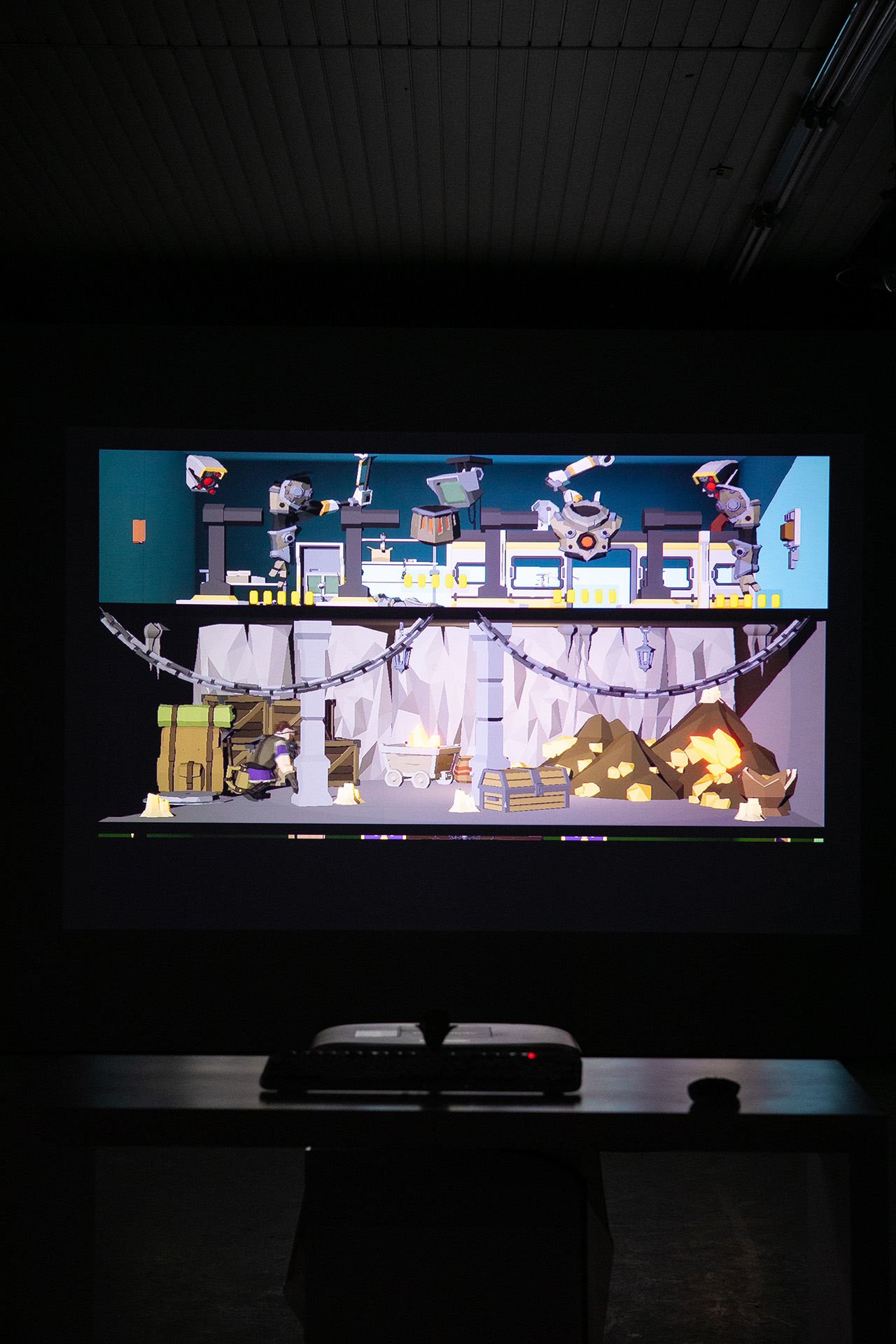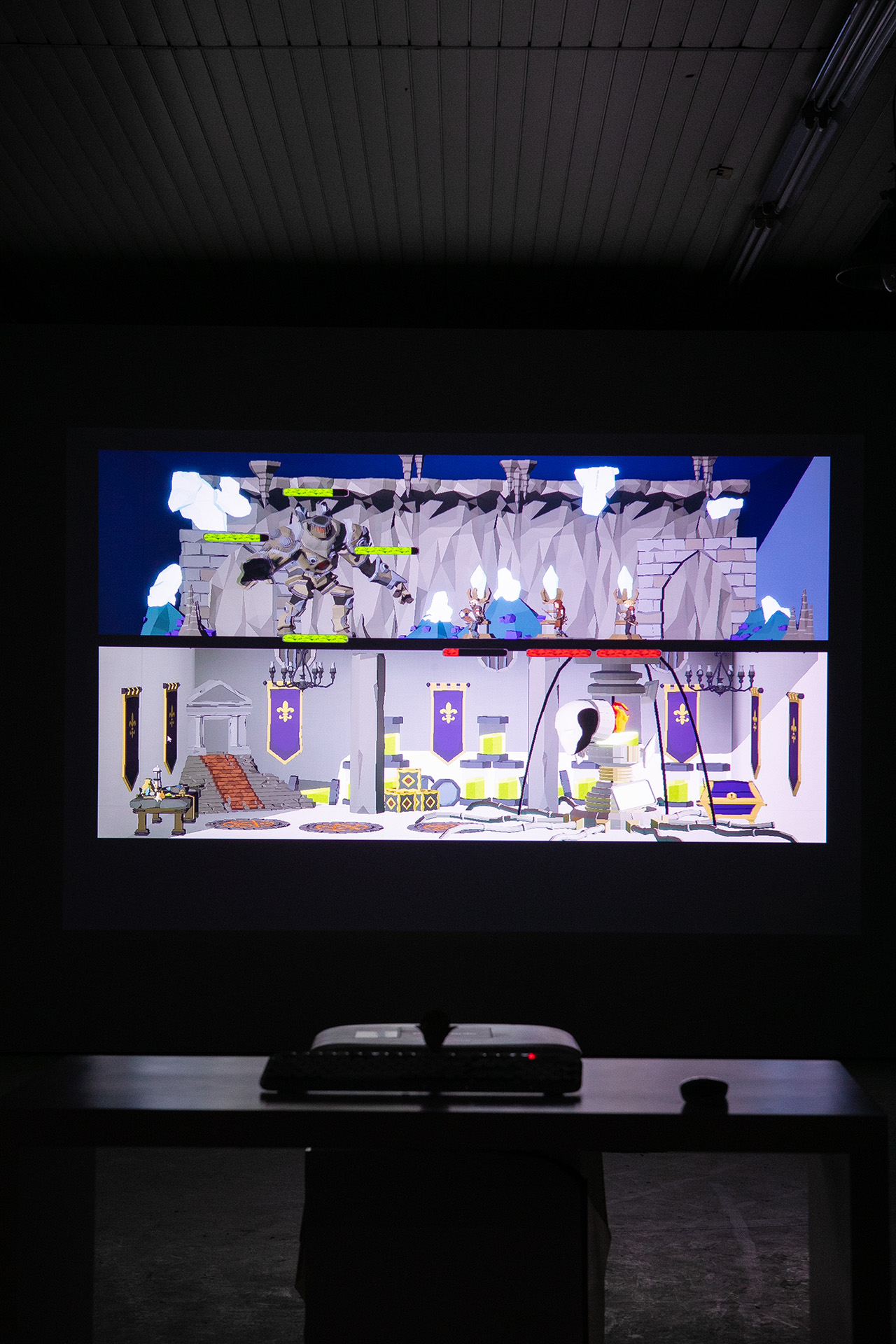
Jewon Yoon has been working from the perspective of game culture by combining theory and creative activities based on in-depth experiences and activities playing games, including game ranker players and community user managers. Yoon presents today's multi-layered game context, which vacillates between digital and physical worlds, and virtual and real, closely, and strangely through the reconsideration and exploration of a game's “production” and a game's “play” behaviour.
This year's I barely survived today takes the form of a defence game yet presents different roles and play zones to incite game behaviour. The defence game is a genre aimed at managing one's forces, collecting resources to prevent incoming enemies, developing forces, and further destroying the opponent's base to win. In general, the village is the home base on the human side, and on the other side, a monster attacks the player's village by forming a force around the dungeon. The defense game has the process of repeating and overcoming, achieving growth, and finally conquering the dungeon and winning. This project reverses the structure while presenting the opposite side of battle and production, which is the core of the process.
I barely survived today presents the role of a dungeon player and simultaneously unveils multiple layers. A human hero enters the dungeon by organising a party from the opposing village, a real-time battle from the entrance of the dungeon, a line in which units are “produced” by training, a daily space where the unit eats, sleeps, and form social relationships with its families before its functions are determined, and a workplace where supplies are produced. Behind the battle and production layers that we’re familiar with, everyday layers that are necessary but usually omitted to immerse and maintain play come into the player's field of vision in real-time. The player repeats fast zoom-in and zoom-out of their perspective, recognising the situation in more complex ways and behaviour. Through this, the audience has the opportunity to experience and think about the nature of the “player” and the “play,” as well as the meaning and scope of the action from different perspectives.

